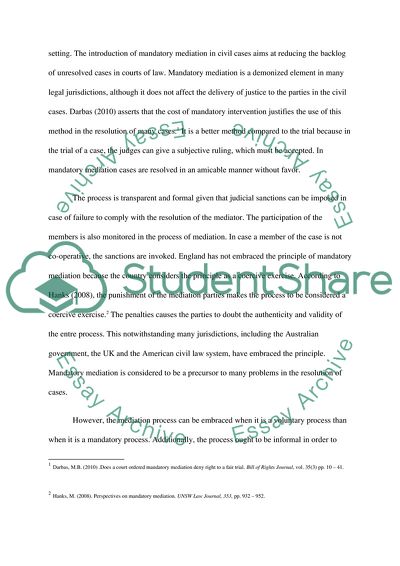Cite this document
(“Mandatory Mediation in Common and Civil Law Countries Essay”, n.d.)
Retrieved from https://studentshare.org/law/1638334-mandatory-mediation-in-common-and-civil-law-countries
Retrieved from https://studentshare.org/law/1638334-mandatory-mediation-in-common-and-civil-law-countries
(Mandatory Mediation in Common and Civil Law Countries Essay)
https://studentshare.org/law/1638334-mandatory-mediation-in-common-and-civil-law-countries.
https://studentshare.org/law/1638334-mandatory-mediation-in-common-and-civil-law-countries.
“Mandatory Mediation in Common and Civil Law Countries Essay”, n.d. https://studentshare.org/law/1638334-mandatory-mediation-in-common-and-civil-law-countries.


